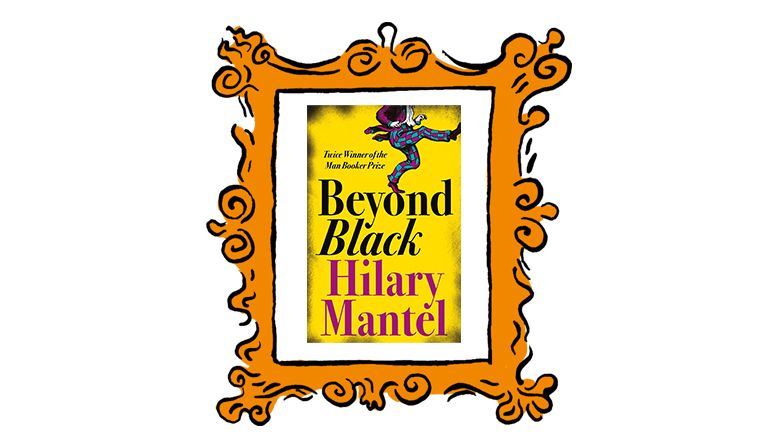So Orbital has won this year’s Booker Prize, as announced on Tuesday night. As a result, its author, Samantha Harvey, will enjoy thousands more sales—and, presumably, £thousands more in royalties. Though the news actually more reminded me of an article I read in the summer. It was by Janan Ganesh, in the FT, who suggested that reading the buzziest new releases—bestsellers and Booker winners included—was largely a waste of time. “If a novel is worth it, it will still have it in a decade or two. If not, the filtering effect of time – which is imperfect in its judgment, but still the best thing we have – will remove the book from consideration by then,” he argued, before adding this slightly snarky aside: “(If you didn’t read Vernon God Little in 2003, how tempted are you now?).”
This last line in particular got me thinking. I didn’t read DBC Pierre’s notorious debut when it won the Booker Prize back then, despite all the buzz—he was a self-proclaimed ex-conman and reformed drug addict whose provocative novel turned a darkly comic and satirical eye on the aftermath of a school shooting. But, in a way, Ganesh was right: I have even less inclination to read it now. Why? Partly, it’s never hugely appealed to my tastes—more so back then, but still so now. But given just how many new titles demand my attention every week, not to mention all the older books stacked on the teetering “TBR” piles dotted around my house, something very specific would have to make me turn back to it now.
Perhaps this is a strange thing to admit, especially since a large part of my professional life is spent rediscovering so-called “forgotten” books. Proof of Ganesh’s argument, I suppose—I’m wheedling out those novels that “still have it.” But, when it comes to this line of work, a literary prize as prestigious as the Booker presents a particularly interesting arena. An internationally recognised stamp of quality, any title nominated certainly stands a better chance than most at remaining in print and read, so are there any unduly neglected novels in the Booker backlist?
Surprisingly, perhaps, the answer is yes. I’ve been lucky enough to have a hand in recently plucking two neglected novels—of more—from the dustier sections of the prize’s venerable shelves. Elizabeth Mavor’s A Green Equinox, brought back into print last year, exactly 50 years after it was first published and shortlisted, after spending most of those overlooked and out of print. And Rhine Journey by Ann Schlee, shortlisted and briefly acclaimed in 1981, before it too sunk into relative obscurity, then republished earlier this year.
Even though Mavor’s novel makes for an excellent bedfellow with the works of her better-remembered contemporaries Iris Murdoch and Brigid Brophy, it also feels rather ahead of its time. It’s an entertaining but poignant rococo romp about a woman on an unexpected romantic and sexual odyssey. When the novel begins, she’s having an affair with a married man, but she soon transfers her affections, first to his wife, then to his mother. As the London Review of Books noted of both Mavor’s fiction and her non-fiction—she also wrote biographies of the famous courtesan the duchess of Kingston, and the cross-dressing Ladies of Llangollen—she “relishes spirited, unorthodox women, free with their tongues and ready to snap their fingers at convention”. Thus, in both this and in her depiction of decidedly fluid ideas of gender and sexuality, Mavor’s work feels more suited to resonate with audiences today than those of half a century ago.
While Rhine Journey—an exquisitely-formed period piece about an English family on a German river cruise in the middle of the 19th century—suffered, I suspect, from being exactly the kind of quietly nuanced masterpiece that was the opposite of the kind of big, bombastic fiction that was making waves at the time. This was, after all, the year that Salman Rushdie’s magical-realist chef-d’oeuvre, Midnight’s Children, took home the prize. Rushdie’s book burned so bright that it obscured Schlee’s own brilliance, yet Rhine Journey’s recent reissue has seen it garner significant praise, again with an audience whose sensibilities feel more in tune with Schlee’s own.
“The art of not reading is a very important one,” wrote Schopenhauer. “It consists in not taking an interest in whatever may be engaging the attention of the general public at any particular time.” While I might not quite go as far as to advocate disengaging entirely from contemporary fiction, if you’re planning to now read Orbital, might I encourage you to also pick another, older title from my own alternative Booker shortlist—one gleaned from the prize’s extensive backlist—all of which have, in my opinion, stood the test of time. Alongside the Mavor and the Schlee, let me recommend the following:
Figures in a Landscape by Barry England (shortlisted in 1969). A white-knuckle, edge-of-your-seat account of two prisoners of war who make a daring escape across an unknown and hostile landscape, their pursuers closing in behind them by means of one of the most menacing helicopters ever found in fiction. (This one’s also perfect for anyone who’s on a cat-and-mouse story kick thanks to the new The Day of the Jackal TV series.)
Sour Sweet by Timothy Mo (shortlisted in 1982). The darkly humourous story of the tribulations of a family of Chinese immigrants living in London’s Chinatown in the 1960s. The culture shocks are the least of their worries when they become embroiled in an ongoing Triad power struggle.
The Orchard on Fire by Shena Mackay (shortlisted in 1996). This memorable tale of a 1950s childhood is one of Mackay’s very best novels. It’s an evocative period piece, but it also does something much more, blending the tragic and the bizarre in a way that’s utterly unique to its author.
Beyond Black by Hilary Mantel (longlisted in 2004). Everyone knows about Mantel’s acclaimed Thomas Cromwell trilogy, but four years before she won the first of her two Booker wins (for Wolf Hall in 2009), she published this contemporary-set novel, my personal favourite of her work. It’s a wonderfully creepy tale of a middle-aged medium who’s beset by very real, very demanding ghosts as she plies her trade in the all-too ordinary community centres and upstairs pub rooms of dormitory towns around the London Orbital edgelands.
Dive into this alternative Booker shortlist
Here are some fantastic books from the prize’s past that didn’t win the top honour
November 14, 2024









